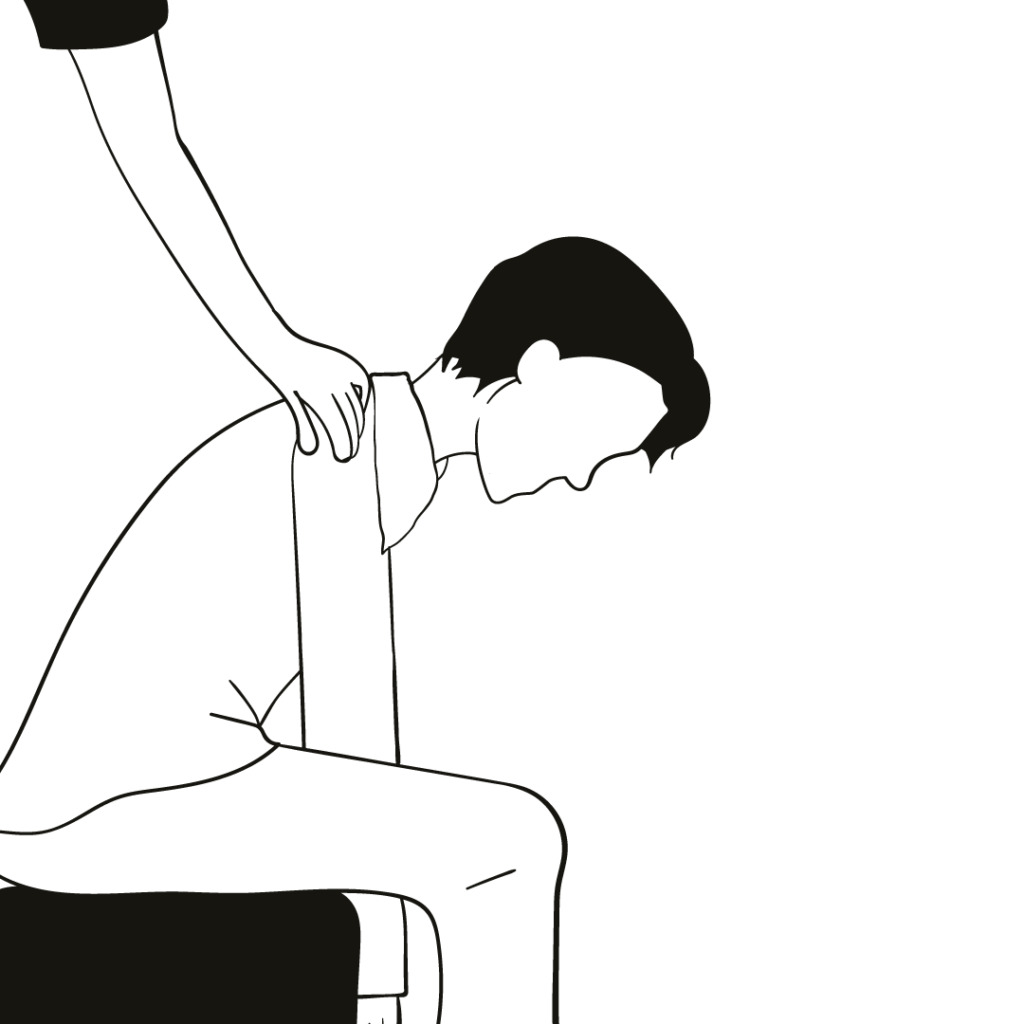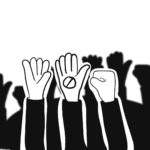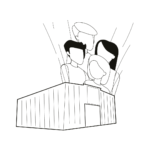FAMILY – THE SECONDARY VICTIM OF SUICIDE
If you’re reading this article and you’re thinking about someone in your life who has experienced something like that, don’t let the fear of saying the wrong things stop you from offering help. As in any other case of death, any help you can give leaves the family members know that you’re there for them so you can separate a piece of the burden they carry, no matter how small the burden you’ll keep. Simultaneously it’s important for the family’s privacy to be respected- your support is enough if they wish to speak about their feelings, they’ll open the subject when they’re ready.
Illustration: Argjira Kukaj

We’ve heard from a relative: “They’re saying the funeral is tomorrow, they’re saying it’s suicide”. Even though we aren’t capable of prevention, when it comes to grieving we’re very quick. Comments are posted online to express consolation, we go to the funeral and we share the confusion on how a person who is that intelligent/positive/loving could have done something like that, at the reception we share stories and sadness about the person’s life and on the way home we’ll comment on how the family stayed strong. For us in the periphery, the next day continues with the usual routine even though we indirectly speak of the event for a short time period. For people who were close their life will not be the same.
Suicide for the individual is a final act, the last act that leaves them on the ground, but its consequences beat as waves into the people close to them. Without a person, situation or object to blame, family and friends often absorb the feeling of guilt. “If only I had spoken to him more…” or “Why didn’t I see it earlier?” are thoughts that occupy daily life. Even worse when this blame is turned into shame, something internalized with thoughts like “I failed as a parent”. The truth is that depression and anxiety (some of the main causes in suicide) for usual people can be undetectable. Someone can look like the most joyous person you know and can still keep a hidden grief inside of themselves. It can happen that you sense some sadness, but the person doesn’t open up because of the fear of stigma or lack of trust. It can also happen that the person talks about their problems, but we aren’t all equipped to get someone out of the hole they’re in alone. Finally, the burden to help people who have thoughts of self-harm should fall on the wider society’s shoulders, not two or three close people. Otherwise it results in a titanic weight they will bear each day, in some case away from other family members, thinking how things could have been different.
By living in a society that stigmatizes every emotional discussion, the family members lose the wish to ask for help. It’s very rare for support to be offered by friends without it being asked for, from the fear that they’re meddling in their business or from the embarrassment to open up such topics of discussion. Even worse when the society’s culture actively gives signals of non-acceptance: a concrete case here is the refusal of the imam to complete religious ceremonies for people who’ve committed suicide, since it’s considered a sin. This only gives a push to religious families to hide the circumstances of death, to not experience public “shame” or to not endanger that the child/parent won’t pass through the same ceremonies they did. If this isolation didn’t help the primary victim, what are the odds it’s going to help their family?
If you’re reading this article and you’re thinking about someone in your life who has experienced something like that, don’t let the fear of saying the wrong things stop you from offering help. As in any other case of death, any help you can give leaves the family members know that you’re there for them so you can separate a piece of the burden they carry, no matter how small the burden you’ll keep. Simultaneously it’s important for the family’s privacy to be respected- your support is enough if they wish to speak about their feelings, they’ll open the subject when they’re ready. Most of all it’s important to be more human- no wound is healed fast, but it hurts less when we’re supported by a group of people who love us. It even eases the discrepancy of cultural norms when society is flexible in a way to help the families that are touched by such situations.
Furthermore, as a society we can support them by normalizing their pain, so by not avoiding difficult subjects just because they make us feel uncomfortable. It’s a tragedy that the possibility that a parent or child can go through this kind of pain. The least we can do is ensure they know they’re not alone, even if we can’t understand their pain.
About the author: Bind Skeja is a 24 year old from Prishtina, who has finished studies in York University for psychology.
Resource Center –ATRC.


